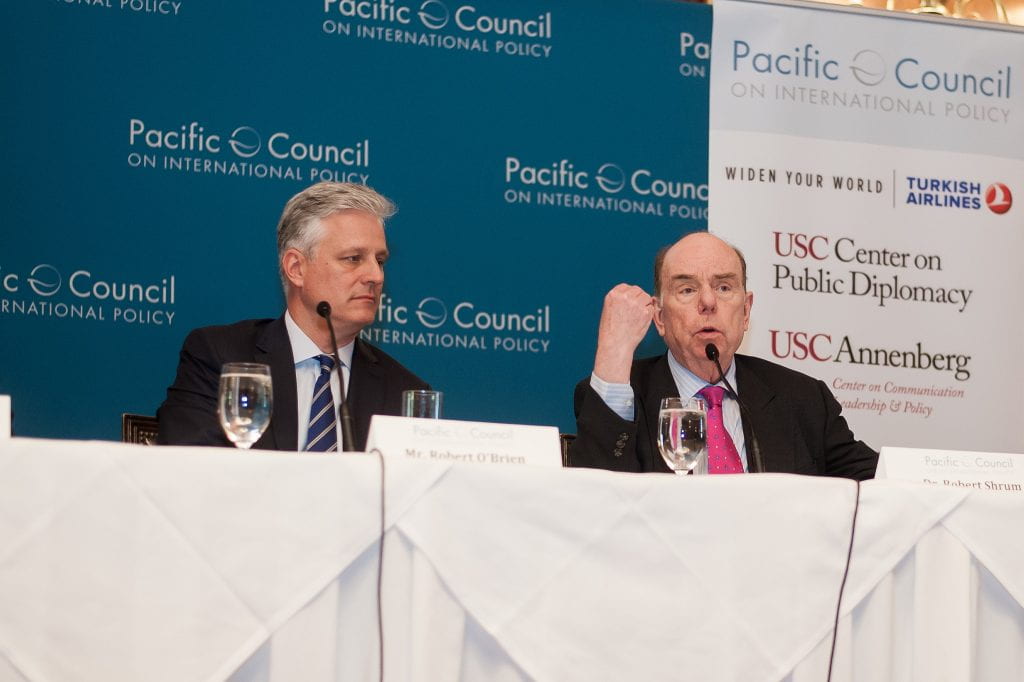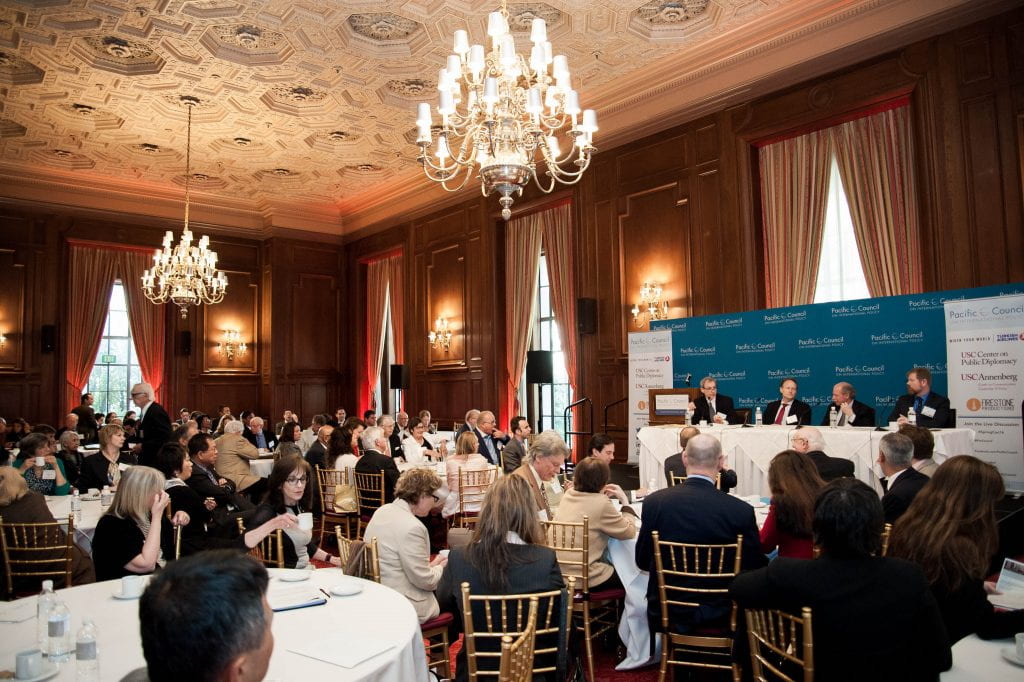Guest speakers from diverse fields including politics, international diplomacy and medicine presented at the Pacific Council on International Policy’s Spring Conference on April 15. The event was co-hosted by the USC Annenberg Center on Communication Leadership and Policy and the USC Center on Public Diplomacy, and provided an opportunity for PCIP members to learn more about current geopolitical issues as well as the future of the international community.
Robert Shrum, the Warschaw Chair in the Practice of Politics at USC, opened the conference during a plenary session about the 2016 U.S. presidential election.
.@BobShrum: 'Sanders is not a socialist, he is a New Deal Democrat who believes in a social safety net' #SpringCon16 @PacCouncil
— USC Annenberg CCLP (@USC_CCLP) April 15, 2016
Shrum spoke on the rise of “anti-establishment” candidates such as Bernie Sanders and Donald Trump, as well as the foreign relations challenges that the future president will face.

The second plenary session focused on evaluating the impact of the Middle Eastern uprisings known as the Arab Spring five years after they took place. The panel included Ambassador Gerald M. Feierstein from the U.S. Department of State; Dr. David Kilcullen, an expert in guerilla warfare; and Ambassador Chris O’Connor from the British Consulate General in Los Angeles. Scott Kraft, the deputy managing editor for the Los Angeles Times, moderated the discussion, which began by tracing the history of the Arab Spring and then moved to what the situation in the Middle East looks like today.
According to O’Connor, the main lesson to take away from the Arab Spring is that big changes can happen quickly – and that political revolutions need to have a focused goal in mind in order to succeed.
“Political and revolutionary change doesn’t go well until you have someone articulating what the change is for,” O’Connor said. “The revolutions in the Arab Spring were against things, but there were no leaders who were articulating an ideology that people were protesting for. So they got rid of the thing they didn’t want, but it was difficult to decide what the rules were for establishing what the next thing will be.”
.@CGChrisOConnor: The number one lesson I learned from the Arab Spring is that big change can happen dramatically quickly. #SpringCon16
— Pacific Council (@PacCouncil) April 15, 2016
Throughout the conference, breakout sessions allowed conference attendees to explore topics ranging from contemporary global health challenges to issues surrounding the continued upkeep of the U.S. detention facility at Guantanamo Bay, Cuba. Dr. Clayton Dube, the executive director of the U.S.-China Institute at USC, moderated a discussion on China’s economic outlook in 2016, while Dr. Charles Cicchetti, a USC professor of policy, planning and development at the Price School of Public Policy, discussed the global energy future and the rise of green energy technologies.
“In the last 50 years, everyone has come to understand the volatility in the price of oil, and high oil prices have meant stagnant economic activity and recessions,” Cicchetti said. “However, today we’re seeing low oil prices meaning economic bad news… The world is recognizing that conventional oil has hit its peak.”
Cicchetti explained that in theory, low oil prices – which arise partly from increased supply – should stimulate economic growth, but the collapse of the global economy dampened any gains from new sources of oil, such as fracking and deep offshore oil drilling. As a result, in a future marked by economic recovery, oil prices should theoretically rise again. However, in the meantime, demand for renewable energy is growing as more countries are beginning to recognize that oil isn’t as reliable as it once was.
“[Even if markets are] looking good in terms of economic recovery, we still have to deal with an issue – what about security?,” Cicchetti said. “The world doesn’t have sufficient spare [oil] capacity to deal with shocks or disruptions.”
The conference’s keynote speech featured Douglas Hodge, CEO of the PIMCO multinational investment firm, in conversation with Robert Eckert, Chairman Emeritus of the Board at Mattel, Inc and a director of the Pacific Council. Hodge discussed the future of the global economy and brought up the impact of economic fluctuations – such as U.S. federal interest rates and the possibility of a British exit from the European Union – on markets worldwide.
